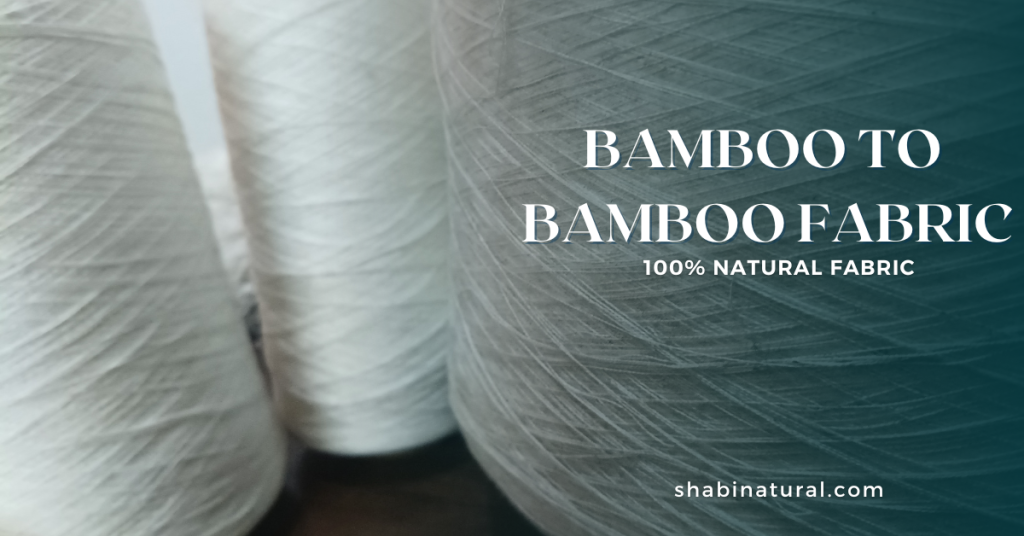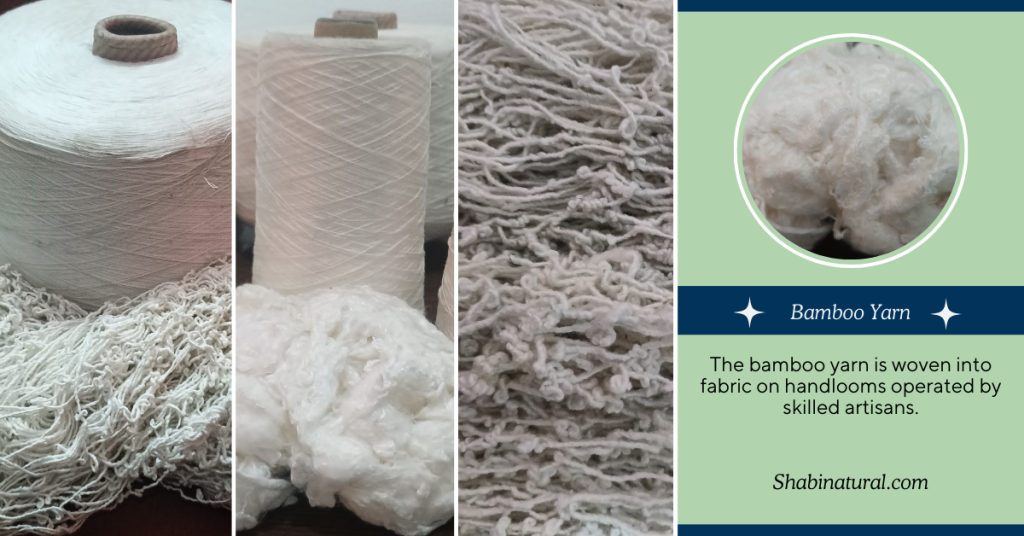The Journey of Bamboo-to-Bamboo Fabric | Nepal to the World
Nestled in the heart of the Himalayas, Nepal is a land of breathtaking natural beauty and rich traditions in craftsmanship. Among its many gifts to the world, Nepal is emerging as a hub for eco-friendly textiles, including bamboo fabric. The country’s sustainable approach to production and its commitment to preserving the environment make it an ideal place for transforming bamboo into fabric.
At Everest Himalayan Handicraft Industry, also known as ShabiNatural, sustainability and craftsmanship are at the heart of everything we do. Our bamboo fabric production process combines traditional methods with eco-friendly innovation, ensuring minimal environmental impact while creating high-quality, natural fabrics.
Here’s a step-by-step look at how we transform raw bamboo into soft, breathable bamboo fabric:

Step 1: Sourcing Bamboo from Nepal’s Hills
We source our bamboo from Nepal’s lush, hilly regions, where it grows naturally without chemical fertilizers or pesticides. This ensures that the raw material is both sustainable and free from harmful chemicals.
Our team works closely with local farmers, harvesting mature bamboo plants responsibly to preserve the ecological balance and ensure that the plants can regenerate.
Step 2: Preparing the Bamboo Stalks
After harvesting, the bamboo stalks are cleaned and trimmed to remove any impurities. We focus on preserving the integrity of the bamboo fibers, which are essential for creating durable fabric.
The stalks are then cut into smaller sections to make the retting process easier and more efficient.
Step 3: Natural Retting Process
At ShabiNatural, we prioritize natural and eco-friendly practices. The bamboo stalks are soaked in water tanks or natural streams to soften them and break down the lignin and pectin that bind the fibers.
This natural retting process is chemical-free and relies on water and microorganisms to loosen the fibers, ensuring the bamboo retains its organic properties.

Step 4: Extracting the Bamboo Fibers
Once the retting process is complete, the softened bamboo stalks are crushed and mechanically processed to separate the fibers from the woody core.
Our skilled artisans manually clean the extracted fibers to remove any remaining impurities, ensuring the fibers are ready for the next stage of production.
Step 5: Spinning Bamboo Fibers into Yarn
The cleaned bamboo fibers are spun into yarn using both traditional and modern spinning techniques. This step aligns and twists the fibers into strong threads while maintaining their natural softness.
Our spinning process is done with precision to ensure that the yarn is suitable for weaving or knitting into various types of fabric.
Step 6: Handloom Weaving by Skilled Artisans
At Everest Himalayan Handicraft Industry, we honor Nepal’s rich tradition of handloom weaving. The bamboo yarn is woven into fabric on handlooms operated by skilled artisans.
This method not only produces high-quality fabric but also supports local craftsmanship and creates sustainable livelihoods for Nepalese artisans.
Step 7: Eco-Friendly Finishing and Dyeing
Once the fabric is woven, it undergoes a gentle finishing process. We use eco-friendly, plant-based dyes to color the fabric, ensuring that it remains free of harmful chemicals.
Natural softening techniques are applied to enhance the fabric’s texture, making it smooth, breathable, and comfortable for everyday use.
The Final Product: Bamboo Fabric by ShabiNatural
The end result is a premium bamboo fabric that is:
- Soft and Luxurious: Perfect for clothing, scarves, and babywear.
- Breathable and Moisture-Wicking: Ideal for hot climates and active lifestyles.
- Antibacterial and Hypoallergenic: Gentle on sensitive skin.
- Eco-Friendly: Completely biodegradable and sustainable.
Why Choose Bamboo Fabric from Everest Himalayan Handicraft Industry?
- Sustainable Production: Our processes use natural methods, minimizing environmental impact.
- Handmade Excellence: From retting to weaving, every step reflects the dedication of skilled Nepalese artisans.
- Local Empowerment: By purchasing our bamboo fabrics, you support local communities and fair-trade practices in Nepal.
- Quality Assurance: We ensure every fabric meets high standards of durability, softness, and sustainability.
Applications of ShabiNatural Bamboo Fabric
Our bamboo fabric is versatile and used for a wide range of products, including:
- Clothing (t-shirts, dresses, babywear, scarves).
- Home textiles (towels, bed linens, curtains).
- Eco-friendly accessories (bags, wraps).
At Everest Himalayan Handicraft Industry (ShabiNatural), we take pride in producing bamboo fabric that combines sustainability with quality craftsmanship. By choosing our bamboo fabric, you’re not only enjoying a premium, eco-friendly product but also contributing to a greener planet and supporting Nepal’s local communities.
Explore our range of bamboo fabrics today and experience the perfect blend of nature, tradition, and innovation!
Visit us at www.shabinatural.com to learn more and shop sustainably.

